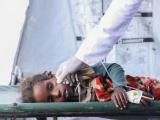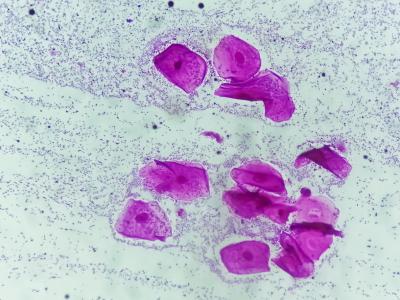May 11, 2012
CDC: Small pet turtles have sickened 124 with Salmonella
The number of people sickened by Salmonella from small pet turtles has almost doubled, to 124 in 27 states, as two new outbreaks have been confirmed, raising the number of recent turtle-linked outbreaks to five, the US Centers for Disease Control and Prevention (CDC) reported yesterday. The outbreak strains are Salmonella Sandiego, Pomona, and Poona, and 19 people have been hospitalized but none have died from their illness, the agency said. Two thirds of all case-patients are 10 years old or younger. In its previous update, the CDC reported 72 cases in 17 states in three separate outbreaks. Affected states and case numbers are: Alaska (2), Alabama (1), Arizona (3), California (21), Colorado (5), Delaware (3), Georgia (3), Illinois (1), Indiana (1), Kentucky (1), Massachusetts (3), Maryland (6), Michigan (2), Minnesota (1), Nevada (4), New Jersey (7), New Mexico (3), New York (24), North Carolina (1), Ohio (2), Oregon (1), Pennsylvania (9), South Carolina (3), Texas (12), Virginia (3), Vermont (1), and West Virginia (1). The CDC reminded consumers that, because of the risk of Salmonella transmission, turtles with a shell length under 4 inches are illegal to sell.
May 10 CDC report
Apr 5 CIDRAP News Scan on earlier CDC report
Tempeh-linked Salmonella cases rise to 63
A North Carolina–centered Salmonella outbreak linked to recently recalled tempeh has grown to 63 cases, the North Carolina Division of Public Health said today. This is 17 cases more than reported on May 4. David Sweat, MPH, a foodborne disease epidemiologist with the division, told CIDRAP News that six cases were in residents of other states, but all had visited Asheville, N.C. Two of the patients were from South Carolina, and the others were from Michigan, New York, Georgia, and Tennessee, he said. Meanwhile, the Buncombe County Department of Health (BCDH) said final test results from the state's public health lab reaffirmed that the outbreak strain of Salmonella Paratyphi B was found in an unopened sample of tempeh. Initial tests were already reported positive on May 4. On May 1, the Smiling Hara Tempeh company, based in Asheville, recalled 12-ounce packages of its soybean tempeh, a meat substitute used in vegetarian cuisine, after it was linked to the outbreak.
May 10 BCDH update
May 4 BCDH update
May 1 CIDRAP News Scan on tempeh recall
Campylobacter outbreak in California linked to raw milk
California officials say 10 Campylobacter infections around the state have been linked to raw milk from Organic Pastures Dairy of Fresno County, prompting a statewide recall of the dairy's products. In a May 11 statement, the California Department of Food and Agriculture (CDFA) said the pathogen was found in raw cream from the dairy, prompting a statewide recall and quarantine order by State Veterinarian Dr. Anne Whiteford. From January through April, at least 10 people contracted campylobacteriosis and reported drinking raw milk from Organic Pastures before they got sick, the CDFA said. The patients, with a median age of 11.5 years, are from Fresno, Los Angeles, San Diego, San Luis Obispo, and Santa Clara counties. There were no hospitalizations and no deaths.
May 10 CDFA press release
ACIP explains new vaccine evidence-grading system
The Advisory Committee on Immunization Practices (ACIP), which advises the CDC on vaccine-related issues, today published a brief overview of its new framework for developing evidence-based recommendations. The report appears in Morbidity and Mortality Weekly Report (MMWR). ACIP adopted the framework, called Grading of Recommendations Assessment, Development, and Evaluation (GRADE), at its October 2010 meeting. An ACIP working group began addressing the issue informally in 2010 and has launched a Web site that contains background materials and tools for using the new GRADE framework. When making new recommendations or revising current ones, ACIP will focus on one of two categories: A, which applies to all people in an age- or risk group, and B, guidance to clinicians for specific patients, according to the report. The GRADE framework allows ACIP to systematically assess the quality of evidence about a vaccine's benefits and risks, along with other considerations such as values, preferences, and economics. The evidence is ranked on a 1 to 4 scale that reflects the level of confidence in the vaccine's effect on the health outcomes ACIP is considering. For example, randomized clinical trials or overwhelming evidence from observational studies would score a 1, while observational studies or randomized controlled trials with major limitations would score a 4. ACIP said the GRADE framework allows members to weigh evidence from immunogenicity or other intermediate outcomes, as well as extrapolations from findings with similar vaccines in similar populations. It said the approach should enhance transparency, consistency, and communication in the development of recommendations.
May 11 MMWR report
ACIP GRADE Web site















